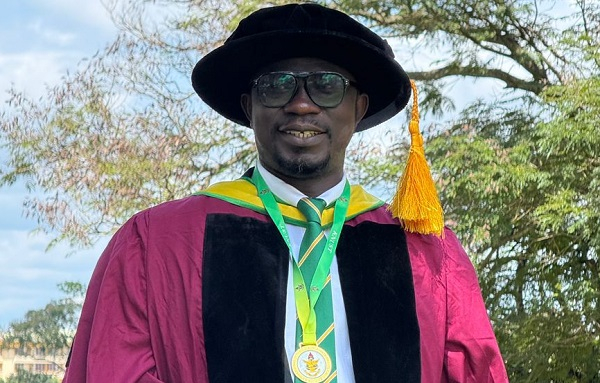Preparing graduates for life after youth service
Participating in the national youth service programme is one of the most memorable and impactful experiences graduates eagerly await. Undoubtedly, one of the most dreadful dilemmas participants confront is what awaits them post-NYSC.
However, irrespective of whatever happens after national youth service, according to experts, the goal is never to stay idle.
In four months, another batch of hundreds of thousands of Nigerians will be leaving the youth service programme, and many do not even know what is next.
Just like in their undergraduate days, many graduates undergoing the national youth service do not see their service year as a time to plan for their career future.
Instead, they enjoy the moment as youth corps members and believe tomorrow takes care of itself.
Despite high hopes of securing jobs after the mandatory one-year NYSC, many corps members still find themselves unprepared for the realities of life vis-à-vis unemployment, unclear career paths, and limited support systems.
The Guardian, in different interviews with some corps members who will, in no distant time, prepare for their passing out, spoke on what the future holds for them.
The Guardian online survey measured about 70 per cent of corps members who said they plan to seek employment immediately after NYSC with many confident they would land jobs within six months.
An Osun state corps member, David Nwankwo, said: “I don’t even know where to start. People keep saying ‘Just apply’, but I don’t know what companies want. What if I don’t get anything?”
Another corps member from Imo state, Oluchi Nwachukwu said: “My mum keeps asking what I would do after NYSC. I just smile. In my head, I am panicking. I have applied for a few jobs but no replies yet.”
An ex-corps member who served in 2023, Tobiloba Ajao, stated, “I got an offer to work at a transport company as a logistics assistant. It’s not what I want to do long-term, but I can’t say no — what if nothing else comes along?”
For a final-month corps member in Benin, Amos Victor, in his opinion, said the transition from NYSC to the labour market was unsupported and unfair.
According to him, there is no system in place to support corps members: “There’s no system to catch you. No one teaches us how to move from khaki to career.”
Experts have said that the one year one spends as a youth corps member is supposed to be a year of rigorous planning and identifying the opportunities and directions one wants to pursue.
They advised that they start planning on what they want to pursue after service irrespective of the job they are assigned to do at their Place of Primary Assignment (PPA).
While urging them to acquire needed professional skills, the experts urged them to narrow down what they desire to pursue as a career after service, which would help them decide what skills and knowledge they lack currently and that are needed for success in the path they have chosen.
An expert on job matters, Olayinka Lasisi, urged the corps members to start their job-hunting months ahead of schedule.
“As soon as you are clear on the analysis of what you need, the service year is a good time to embark on aggressive skills acquisition and self-improvement. Most likely you will have plenty of time on your hands that you shouldn’t waste. Join professional organisations, get online, and start bringing yourself up to date in your area of interest.
“If you have identified the sort of jobs and career you are interested in it is advisable to commence your active job search a few months before you pass out from service.
Many graduates have landed jobs this way as it helps you make mistakes, and send your profile to as many targets as possible when the pressure to sustain yourself isn’t yet fully on you. Create a professional career profile for yourself and join career platforms like Ngcareers.”
He also urged them to start identifying internship opportunities, stating that one of the best ways to get their foot in the door in their dream career was to seek internship opportunities where they would be trained and given the chance to prove their worth.
For those interested in business, Lasisi advised that their service year could be used to prepare in the following ways of identifying their passion area and entrepreneurship ideas they want to pursue.
He said: “Save some amount of money to help you as take-off capital (to do this you will have to work on several jobs like take up teaching in one or two schools, do any job around that will fetch you some extra thousands of naira per month).
“If you are interested and passionate about it and have the tools, you can take up an online business and start something in an area of interest. If you go at it in the 10 months or so you may end up having a sustainable online business you can focus on after your service.”
Another expert, Bisola Ogunlewe, urged the graduates to build their careers and set goals first.
Noting that the goals do not have to necessarily be long-term, however, to achieve success, she urged that they can set both long-term and short-term goals.
“To begin with, choose a career path that interests you. It is highly unlikely that you will excel in some fields that you do not take an interest in. Similarly, also make sure that it has a fine scope in the future. Most importantly, make sure that you possess the skills to pursue that career. You can enrol in different types of courses that will help you build a fine career out of your skills and talents.
“For instance, those who want to go into the academic field can take up professional training and learn the art beforehand. To survive in an economy like Nigeria’s, one has to be independent, not waiting or depending on the government to be of help,” she said.
In response to the challenges, The Guardian gathered that many corps members are currently taking online courses or earning certifications.
While many said they have also joined tech communities, volunteered, and attended career webinars, others said they have joined alumni mentorship groups, job alert Telegram channels, and graduate internship platforms, saying that most of the efforts were self-driven.
According to statements from the NYSC, the scheme’s core mission remains unchanged which is primarily meant to foster national unity, inculcating discipline and patriotism, and developing self-reliance and skills.
It said that while the programme works with available placements, the focus is on serving the nation, improving communities, and growing the nation.
It added that retention in placements was not guaranteed, but the exposure and experience gained were valuable.












